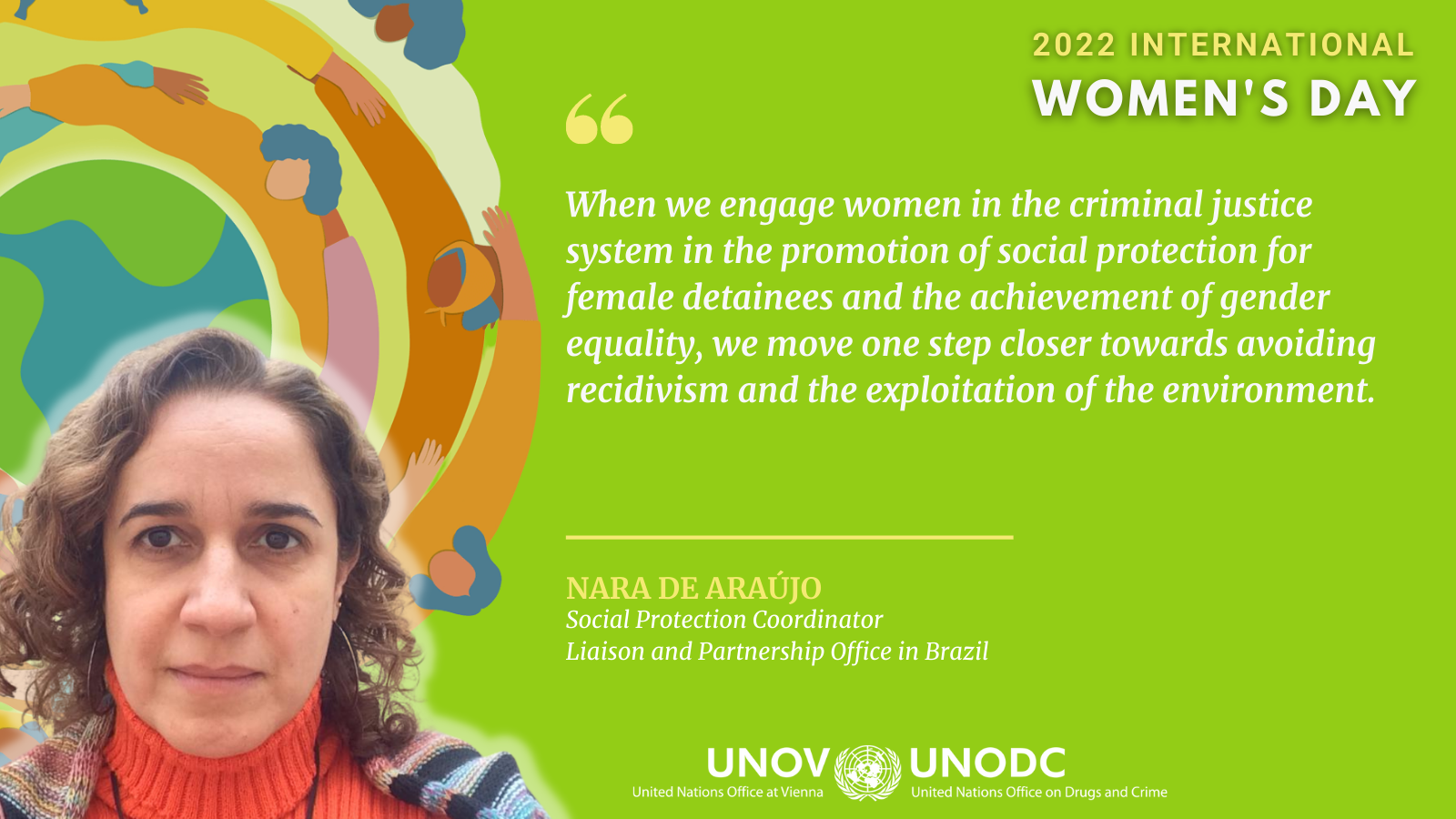


(c) UNODC
The psychosocial support provided by the social protection service in the pre-arraignment setting in courts is an innovation of the UNODC project. The identification of social and health conditions of the detained person aims at providing subsidies for the judge's decision for both custodial and non-custodial measures. As it relates to arrested women, the Social Protection Handbook presents a specific section on elements that should be considered by the psychosocial teams when carrying out the needs assessment. For example, it is important to inform the judge if the arrested woman has children, how many, if they are under 12-years old, do any of the children have a disabolity or chronic disease; is the woman responsible fro any other person with a disability; if she works; if she is studying, among other information on her personal, social and health conditions. Of course, all the responsibilities mentioned above are not only women's concernes and should also be checked with arrested men, but due to persisting gender inequalities, women are usually the ones in the family with the responsibility for taking care of children and other family members. This must be considered by judges when working with arrested women.

(c) UN Women
Marked annually on March 8th, International Women's Day celebrates women's achievements and raises awareness about women's equality. UN Women announced this year`s theme as, “Gender equality today for a sustainable tomorrow.” The theme recognizes the contribution of women and girls around the world, who are leading the charge on climate change adaptation, mitigation, and response, to build a more sustainable future for all. It is aligned with the priority theme for the upcoming 66th Commission on the Status of Women (CSW66): “Achieving gender equality and the empowerment of all women and girls in the context of climate change, environmental and disaster risk reduction policies and programmes.”